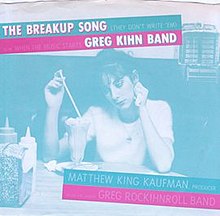
The Cars were an American rock band formed in Boston in 1976. Emerging from the new wave scene in the late 1970s, they consisted of Ric Ocasek, Benjamin Orr, Elliot Easton, Greg Hawkes (keyboards), and David Robinson (drums). Ocasek and Orr shared lead vocals, and Ocasek was the band's principal songwriter and leader.
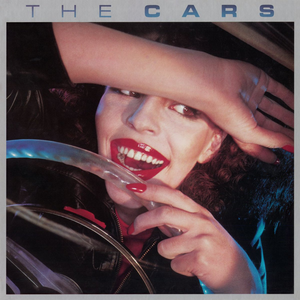
The Cars is the debut studio album by American rock band the Cars, released June 6, 1978 by Elektra Records. The album was produced by longtime collaborator Roy Thomas Baker, and spawned several hit singles, including "Just What I Needed", "My Best Friend's Girl", and "Good Times Roll", as well as other radio and film hits such as "Bye Bye Love" and "Moving in Stereo". The Cars peaked at number 18 on the US Billboard 200 album chart, and has been certified 6x platinum by the Recording Industry Association of America (RIAA).
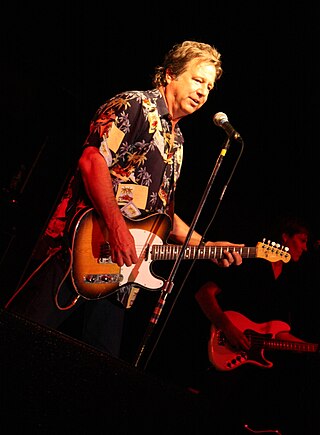
Gregory Stanley Kihn was an American rock musician, radio personality, and novelist. He founded and led the Greg Kihn Band and he wrote several popular horror novels. He is best known for the hits "The Breakup Song " in 1981 and "Jeopardy" in 1983.

"Not Fade Away" is a song credited to Buddy Holly and Norman Petty and first recorded by Holly and his band, the Crickets.

"Ruby Tuesday" is a song by English rock band the Rolling Stones, released in January 1967. The song became the band's fourth number-one hit in the United States and reached number three in the United Kingdom as a double A-side with "Let's Spend the Night Together". The song was included in the American version of Between the Buttons.

"Honky Tonk Women" is a song by the English rock band the Rolling Stones. It was released as a non-album single on 4 July 1969 in the United Kingdom, and a week later in the United States. It topped the charts in both nations. The song was on Rolling Stone's 500 Greatest Songs of All Time list, and was inducted into the Grammy Hall of Fame.
Beserkley Records was an American independent record label based in Berkeley, California, from 1973 to 1984. Beserkley is usually regarded as a power pop and rock and roll label. During the 1970s, the label released albums by Earth Quake, Greg Kihn, Jonathan Richman, and The Modern Lovers, the Rubinoos, and the Tyla Gang. Several other artists appeared on singles, or on compilation albums. From 1980 to its dissolution in 1984, Beserkley was a one-artist label, the artist being Greg Kihn.
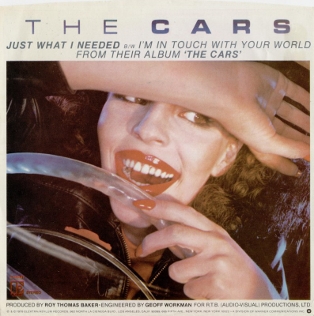
"Just What I Needed" is a song by American rock band the Cars from their self-titled debut album (1978). The song, which first achieved radio success as a demo, took inspiration from the Ohio Express and the Velvet Underground. The song is sung by bass player Benjamin Orr and was written by Ric Ocasek.
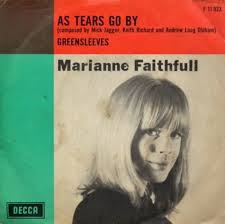
"As Tears Go By" is a song written by Mick Jagger, Keith Richards and Rolling Stones' manager Andrew Loog Oldham. Marianne Faithfull recorded and released it as a single in the United Kingdom in 1964. Her song peaked at number nine on both the UK and Irish singles charts. Later, the Rolling Stones recorded their own version, which was included on the American album December's Children . London Records released it as a single, which reached number six in the Billboard Hot 100 singles chart.

"Let's Go" is a song by American rock band the Cars, written by Ric Ocasek for the band's second studio album, Candy-O (1979). A new wave rock song, the song's hook was inspired by the Routers. The song's vocals are performed by bassist Benjamin Orr.

"Waiting on a Friend" is a song by the English rock band the Rolling Stones from their 1981 album Tattoo You. Written by Mick Jagger and Keith Richards and released as the album's second single, it reached No. 13 on the Billboard Hot 100 singles chart in the US.
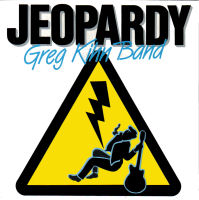
"Jeopardy" is a song released by the Greg Kihn Band, from their 1983 album Kihnspiracy. It was the band's only Top 10 hit on the Billboard Hot 100 singles chart, reaching number 2 in May 1983.

"Urgent" is a song by the British-American rock band Foreigner, and the first single from their album 4 in 1981.

The Greg Kihn Band was an American band that was started by frontman Greg Kihn and bassist Steve Wright. Their most successful singles include "The Breakup Song " and "Jeopardy". The band's musical style and genres comprise rock, pop rock and power pop.
Matthew "King" Kaufman is an American record producer who was the owner of leading independent label Beserkley Records in Berkeley, California from the mid-1970s through the mid-1980s, successfully producing records by Jonathan Richman, Greg Kihn and others.

"Burnin' for You" is a song by American hard rock band Blue Öyster Cult. It was released as the lead single from the band's eighth studio album, Fire of Unknown Origin, released in June 1981, where it was the album's second track. The song was co-written by guitarist Donald "Buck Dharma" Roeser and rock critic songwriter Richard Meltzer, who wrote lyrics for several of the band's songs. Roeser sang lead vocals on the song in lieu of Blue Öyster Cult's usual lead vocalist Eric Bloom.

"He Will Break Your Heart", is a song originally performed and co-written by Jerry Butler. It was a top-ten hit in 1960.
Larry Lynch is an American former drummer for the Greg Kihn Band. They had a #2 US hit with "Jeopardy" in 1983 and a #15 hit with "The Breakup Song ". After leaving the Greg Kihn band, "Larry Lynch and MOB ", gigged throughout the East San Francisco Bay area, teaming up with Robbie Dunbar, the guitarist from San Francisco's Earth Qquake.

Released in 1981, Rockihnroll is the sixth studio album by Greg Kihn and the third album as the Greg Kihn Band. It produced the band's second highest-charting single, "The Breakup Song ".
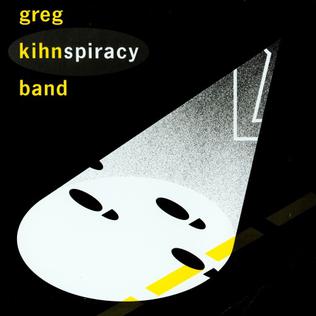
Kihnspiracy is a studio album by the Greg Kihn Band, released in 1983 by Beserkley Records. The album features the hit single "Jeopardy", the band's only top 10 hit on the Billboard Hot 100 singles chart. It reached number 2 in May 1983, beneath Michael Jackson's "Beat It". A parody of the song, "I Lost on Jeopardy", was released by "Weird Al" Yankovic in 1984.
